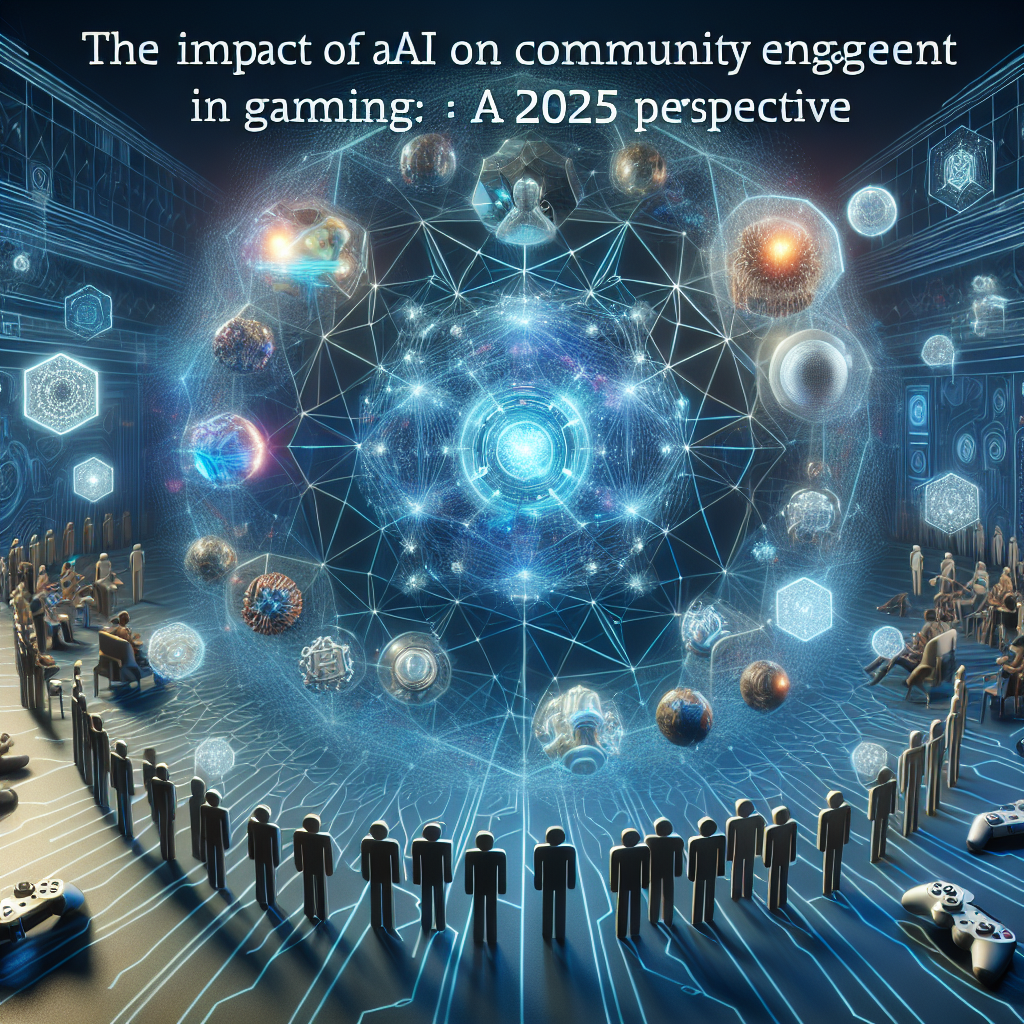The Impact of AI on Community Engagement in Gaming: A 2025 Perspective
By 2025, the gaming landscape has undergone a profound transformation, largely driven by the advent of advanced artificial intelligence (AI). As players immerse themselves in increasingly interactive and personalized gaming experiences, AI has played a pivotal role in reshaping community engagement within gaming ecosystems. This article explores the multifaceted ways AI is influencing community dynamics in gaming, the benefits it brings, and the challenges that accompany this technological evolution.
Enhanced Personalization
One of the most significant impacts of AI on community engagement in gaming is the heightened level of personalization. By analyzing player behavior, preferences, and interactions, AI systems have become adept at creating tailored experiences that resonate with individual players. In 2025, games utilize sophisticated algorithms to adjust difficulty levels, recommend in-game content, and curate community events based on players’ unique profiles.
In this context, community engagement has evolved from a one-size-fits-all approach to a more bespoke experience. Players now receive personalized invitations to community events, game tournaments, and collaborative missions with friends or like-minded players. This focus on personalization not only enhances player satisfaction but also fosters deeper connections within gaming communities.
Real-Time Feedback and Adaptive Experiences
AI has also revolutionized player feedback mechanisms. In 2025, many games feature AI-driven feedback systems that allow players to express their opinions and experiences in real time. This adaptive feedback loop empowers developers to make rapid adjustments to game content and community structures, thus enhancing player engagement and satisfaction.
For example, if a game’s storyline is receiving mixed reviews, AI can detect declining engagement metrics and prompt developers to adjust the narrative or offer alternative paths, thereby reigniting interest. This responsive approach not only strengthens the bond between developers and gamers but also encourages a culture of collaboration where players feel their voices are heard and acted upon.
Building Inclusive Communities
AI plays a crucial role in making gaming communities more inclusive and diverse. By leveraging data analytics, game developers can identify and address biases within gaming environments. In 2025, AI algorithms analyze player interactions to proactively identify toxic behavior, promote positive interactions, and ensure that gaming spaces remain welcoming to all participants.
Moreover, AI tools can help broaden representation within gaming narratives, allowing for more diverse characters and themes. This inclusivity fosters a sense of belonging among players, as they can see themselves reflected in the games they play and the communities they engage with. Such representation not only attracts a wider audience but also enriches community interactions by cultivating varied perspectives.
Facilitating Collaboration Through AI
In 2025, gaming has transcended traditional solitary and competitive formats, thanks in large part to AI’s facilitation of collaborative experiences. AI-powered matchmaking systems allow players to connect with others who share similar goals, interests, or skill levels. This creates opportunities for co-op missions, team challenges, and community events that would be difficult to organize without AI assistance.
Additionally, AI-driven virtual assistants act as guides or mentors, helping newer players navigate complex worlds or multiplayer environments. Such support not only enhances the overall gaming experience for newcomers but also encourages seasoned players to engage as mentors, enriching community ties.
Challenges and Ethical Considerations
Despite the promising advances brought about by AI, challenges and ethical concerns persist. The reliance on data analytics for personalization raises privacy issues; players may feel uncomfortable with extensive tracking of their behaviors. Furthermore, issues related to algorithmic bias can inadvertently exacerbate exclusion or discrimination within gaming spaces.
Another concern is the risk of over-reliance on AI, which could lead to a homogenization of gaming experiences. As personalization becomes more dominant, there exists the potential for communities to become insular, limiting exposure to diverse gameplay styles and perspectives.
Conclusion
As we look towards 2025, the impact of AI on community engagement in gaming is profound and complex. Enhanced personalization, real-time feedback, inclusivity, and collaboration are just a few of the transformative effects that AI has brought to gaming communities. However, it is essential to navigate the accompanying challenges with care to ensure that all players can experience the richness of engagement that gaming offers.
Ultimately, the future of gaming will hinge on balancing technological advancement with ethical considerations, fostering communities that not only engage players but also respect their individuality and privacy. As we embrace AI’s potential, the goal should remain: to build vibrant, inclusive, and dynamic gaming communities where everyone can thrive.




